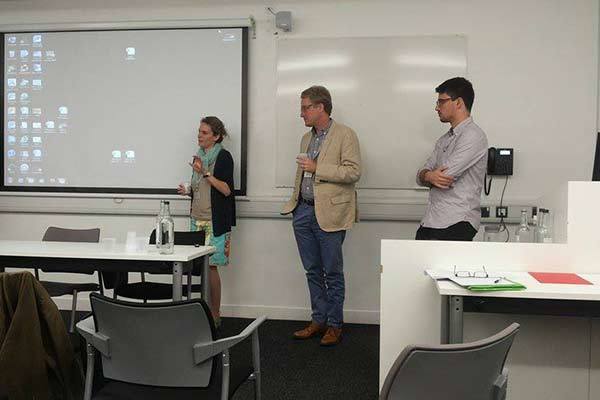
The Nanovic Institute often sends graduate students to Europe to conduct archival research. Every once in a while, they find something new. This is the case for Belen Vicens, a graduate student in the History department. She used her Graduate Travel and Research Grant to work in the Arnamagnaean Collection at the University of Copenhagen. where she discovered a new codex. Read all about it, and its potential impact, in her own words:
My summer project consisted of two activities related to my dissertation: archival research in Copenhagen and a conference presentation in the UK. While the conference paper was very successful, I would like to focus on a discovery I made during my stay in Copenhagen. There I worked in the Arnamagnaean Collection at the University of Copenhagen. Last year I found an online catalog of this collection, which is particularly strong in Icelandic manuscripts, detailing their small holdings of manuscripts of Spanish provenance. One of them caught my attention because its description matched very closely the kind of manuscripts I work on: medieval compilations of customary laws from the kingdom of Aragon, in northeastern Spain. I had an intuition that the catalog description, though incorrect in some aspects, revealed the existence of a hitherto unknown manuscript.
Thanks to the generosity of the Nanovic Insitute, which has over the years consistently supported my dissertation research, I was able to go to Denmark this summer to consult this manuscript. And, as I had anticipated, it turned out that the manuscript was indeed a new codex. The discovery is one of those amazing moments in a scholar’s career when your contribution is likely to revolutionize a field of knowledge.
While I was in the UK for the conference, I was fortunate to reconnect with a colleague who is now co-editor of the renowned Journal of Medieval Iberian Studies and after briefly discussing the finding, he urged me to send an abstract to the board. I was concerned that the journal would not be interested in publishing a short piece announcing the discovery and outlining its significance because this journal does not generally accept editions of manuscripts. But, as my colleague put it “there is universal enthusiasm for your project at the board!” My plan now is to submit a short piece for review in the next few months while I continue to work on the much larger project of editing the manuscript, which will become my priority once I complete the dissertation. If the short piece is accepted in time for the job market, my CV will show two peer-reviewed articles at prestigious journals. This will certainly boost my chances of obtaining a good job next year.